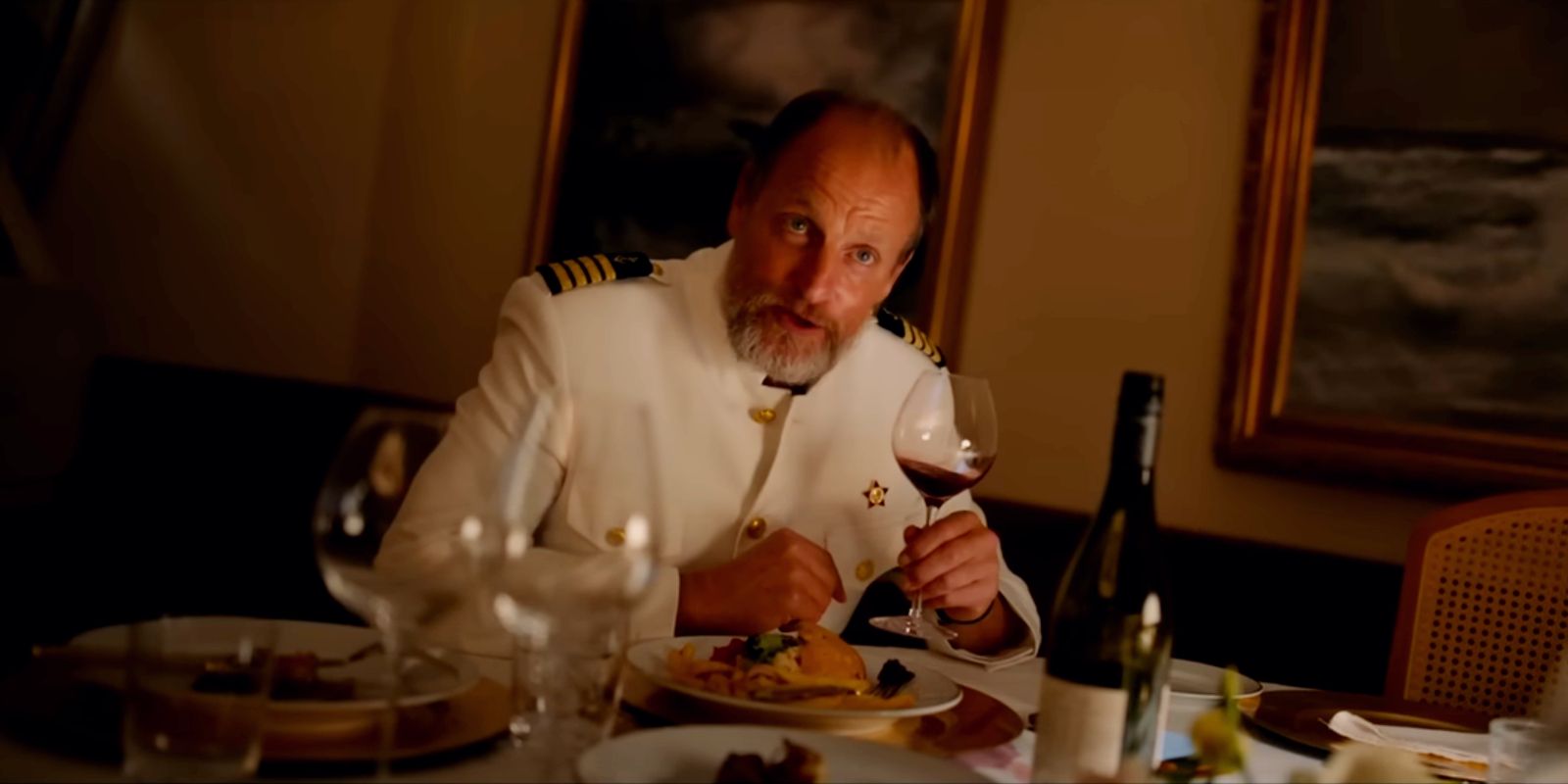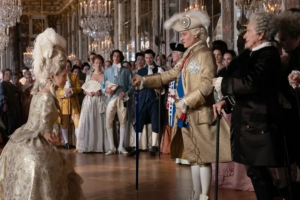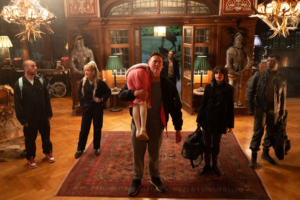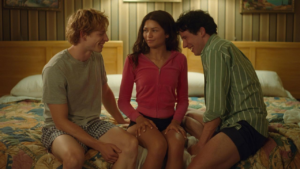Triangle of Sadness Reviewed by GREG KING
Director: Ruben Ostlund
Stars: Charlbi Dean, Harris Dickinson, Woody Harrelson, Zlatko Buric, Dolly De Leon, Amanda Walker, Oliver Ford Davis, Arvin Kananian, Vicki Berlin, Henrik Dorsen, Carolina Gynning, Tobias Thorwid, Alicia Eriksson

Swedish director Ruben Ostlund (Force Majeure, etc) is one of a handful of filmmakers who have won the prestigious Palme D’Or Prize at Cannes twice. He first won with his 2017 film The Square, which was a biting satire of the pretentious world of contemporary art. He won his second award for his latest film Triangle Of Sadness, an acerbic black comedy which deals with themes of power, beauty, wealth, class, privilege and status, but it also serves up a biting critique of the vacuous world of fashion and modelling and the increasing importance and role of social media influencers who trade comments in exchange for lots of freebies.
Yaya (South African actress Charlbi Dean, in her final performance before her untimely death) is one such vacuous social media influencer. She and her himbo model boyfriend Carl (Harris Dickinson, recently seen in Where The Crawdads Sing, etc) are travelling on the $250,000,000 luxury yacht owned by Dimitry (Zlatko Buric), a billionaire Russian oligarch who made his fortune in the fertiliser business. Most of their fellow passengers are extremely wealthy but also somewhat self-important and self-absorbed. The captain (a superbly droll Woody Harrelson) is an alcoholic Marxist undergoing something of an existential crisis and he rarely emerges from the comfort of his darkened cabin.
The voyage is relatively smooth sailing until a perfect storm of terrorism and rough seas strikes the yacht while the passengers are dining. Amidst lots of projectile vomiting and exploding toilets which overflow and spew sewage into the hallways the yacht sinks.
The surviving passengers find themselves stranded on a deserted island. Here the power structure is quickly inverted as the rich and powerful people are removed from their creature comforts and have no practical skills in dealing with such a situation. Instead, Abigail (Filipino actress Dolly De Leon), the hitherto invisible cleaning woman who had scrubbed the toilets and the ship’s decks, emerges to take charge and organise the survivors. But she too soon begins to abuse her newfound power. This is more Lord Of The Flies or Lost than Gilligan’s Island, and its trenchant critique of the wealthy and their hypocrisy and rarified world makes this a fine companion piece to The Menu.
Ostlund has assembled a strong ensemble cast to bring these quirky characters to life, and the performances are all spot on. Harrelson is particularly good as the unhinged captain who remains distant from his passengers and De Leon almost steals the film with her performance. As Clementine and Winston, Scottish actress Amanda Walker (Cloud Atlas, etc) and Oliver Ford Davis (Star Wars Episode I: The Phantom Menace, etc) respectively make for a nice elderly couple who seem to be the only genuinely decent people of the yacht, despite having made their fortunes through the armaments business.
The film has been nicely shot aboard the Christina O, the former yacht of the Onassis family, by Ostlund’s regular cinematographer Fredrik Wenzel, and there is some superb production design from regular collaborator Josefin Asberg to create the sumptuous interiors of the luxury yacht.
Triangle Of Sadness unfolds in three distinct chapters, but the first chapter is the least interesting of the three as it mainly centres around Yaya and Carl arguing about the value of money and gender norms. But as the film moves into the next chapter their relationship becomes less important and Ostlund turns his attention to their fellow passengers, exploring their foibles.
Triangle Of Sadness is the third in Ostlund’s unofficial trilogy exploring themes of masculinity and he makes his points clearly and sharply here. His black comedy will have audiences laughing uncomfortably at some inappropriate moments and wincing in disgust at others, and that is his intention. But what Ostlund has to say about the rich and powerful is nothing particularly original that hasn’t been explored in other movies, although the scathing satire of the rich and shameless and the gross out moments won’t be to everyone’s tastes. However, the filmmaker gets his message across, although he does push the boundaries of taste at times. Ostlund’s approach is far from subtle, but the film will prove entertaining for many in the audience.
However, the film’s running time of 147 minutes is overly generous, and it does slightly outstay its welcome.
The film gets its unusual title from the beauty industry’s reference to that wrinkle between the eyebrows where frown lines are formed when a person is angry or upset.
★★★★



